This post may contain affiliate links and Corporette® may earn commissions for purchases made through links in this post. As an Amazon Associate, I earn from qualifying purchases.

We realize interview week is over at some schools; for others they're still to come. Still, callbacks will be going on well into September and October, so we thought we'd share some advice on interviewing.
Depending on where you are in your career, you may want to check out our best on-campus interview tips, the best job application tips for mid-levels, or readers' tips for women interviewing at high-level jobs.
As part of our general interview advice, we've rounded up 5 things to always bring to interviews — as well as how to deal with post-interview anxiety.
If you're interested in interview attire, check out our Guide to Suits for advice on how to wear suits, as well as our huge roundup of the best women's suits this year — as well as discussed the best interview attire for different types of jobs. We've also rounded up the best bags for interviews, the rules for interview shoes, and how to style long hair for interviews.
{related: do you still apply even when you don't meet the job requirements?}
Our Best Advice on Interview Prep…
1. Make sure your resume is up to date and without typos. We recommend putting the “date printed” on your resume — it can just be a field in your footer. This is especially helpful when you make changes to your resume, or if you interview with firms multiple years.
{related: here's how long your resume should be}
2. Think about which of your personality traits to highlight. Try to recognize what it is about you that makes you a great catch for an employer. Are you creative, an outside-the-box thinker? A great manager? Someone who pulls teams together? These are the sorts of things that won't appear on your resume and might not even come up through your references.
Now, once you've identified those traits, sift through your experiences to find examples of those traits in action, because showing is always better than telling when it comes to these things. Armed with two or three stories, you'll be all set to casually drop them in when you interview. It's a great way to prepare for those questions you can't prepare for — (“What does your resume not tell me?”) — and it's a great way to sound intelligent and charming but not rehearsed.
3. Research, research, research. Google the firm or company. Know the web site backwards and forwards. If you're interviewing with a law firm, search Westlaw for recent decisions (or briefs) that lawyers at the firm were involved with. Check Above The Law for scuttlebutt.
4. Work an inside connection. Peruse Linked In to see who you know. Figure out if anyone from your journal worked there last summer. Ask the Career Office if they know of any alums. Try to make a phone call or shoot an e-mail — if you know the person well it can be as simple as “I've got an interview this Monday with ____ — anything I should know?” We once advised a friend to mention a recent case during her interview and she got the job.
{related: 6 new rules for resumes you may not know}
What to Do During the Interview
5. Lean forward — it silently conveys your interest. Simultaneously, avoid crossing your arms (it makes you seem closed off) and keep your focus on the “triangle” of the person's face formed by their eyes and mouth. Check out Lifehacker's guide to other “conversation hacks.”
6. Focus on the conversation and be sure to answer the questions asked. Sometimes doing a little preparation work makes you overeager to answer questions a certain way — be sure you're not making that mistake.
What to Do After the Interview…
7. Keep detailed notes of who you spoke to — and what you spoke about. We had a friend who, during her OCI week, kept a spreadsheet that included the firm's name/website/telephone number, the date of the interview, the name of her interviewer, 3 brief pros and 3 cons about the firm (in case someone from the firm called she wanted to remember quickly), the date of her callback and any information about it (hotel/flight reservations, etc), the name of who she interviewed with on her callback, and her general impressions from walking around inside the firm on her callback.
8. Don't pick up your telephone unless you know who's calling. Of COURSE, firms aren't fungible. But the distinctions between the firms tend to get a bit blurry after a you've interviewed with 15-20 of them. Our advice: let everything go to voicemail unless you know for sure who's calling. This way you'll absolutely be prepared to sound professional, intelligent, and 100% interested in the job.
9. Set up Google Alerts or Westlaw alerts if you're interviewing for a legal job. If there's a new development, you'll want to hear about it, both to sound knowledgeable about the firm during your interview as well as to gauge your own interest in the firm.
10. Send professional thank you notes. Check and check again to be sure there are no typos in the letter! Be sure to mention the conversation you had (“It was great to hear more about X and Y”). If you interviewed with multiple people, it's acceptable to send one thank-you note to just one of the people — either via the hiring office or to whichever (senior) interviewer you clicked with the best. For more advice on thank-you notes, check out this list of FAQs on Thank You Letters.
Have we left anything out? What are your best tips on interviewing? Comment away…
Some General Recommendations for Interview Attire
The Best Interview Bags for Women
As of 2024, if you're hunting for a lightweight tote large enough to fit a paper resume — the perfect interview bag for ladies! — these are our favorite options…
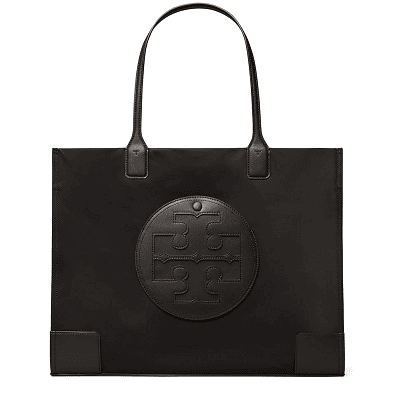
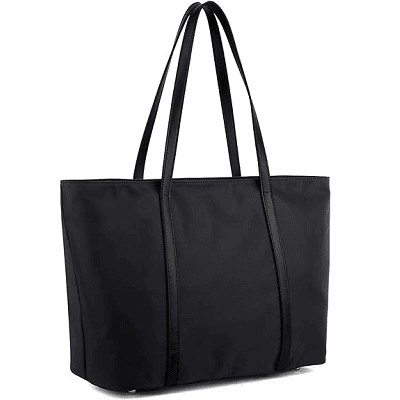
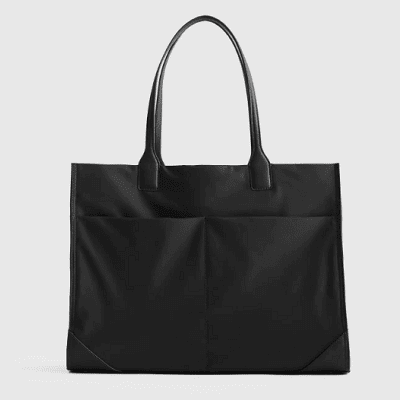
The Most Comfortable Heels for Interviews and Work
Check out our Guide to Comfortable Heels, but these are some of our latest favorites…
These are some of our favorite heels as of 2024, but check out our entire Guide to Comfortable Heels!
Budget-Friendly Suits for Job Interviews
Some of our favorite budget-friendly interview suits for women include stores like Banana Republic Factory*†, J.Crew Factory*†, Mango*, and Express†, as well as widely available brands like Anne Klein Executive, Vince Camuto*, Calvin Klein*†, and Tahari ASL. For a vintage vibe, check Amazon seller Marycrafts*. (* = some plus sizes also, † = petites)
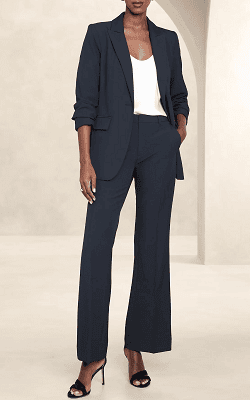
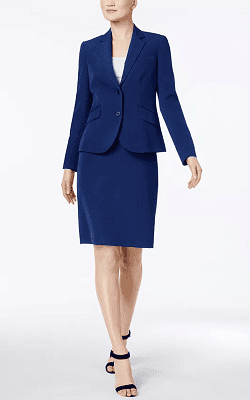
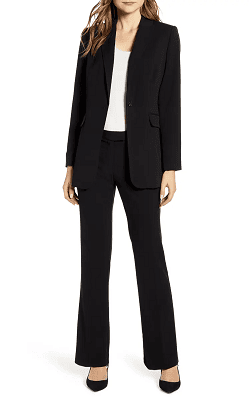
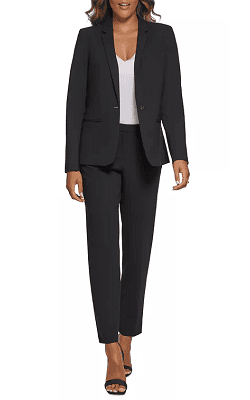
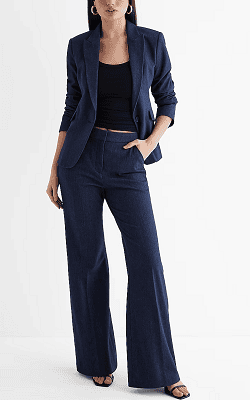
Pictured: SOCIALisBETTER, courtesy of Flickr.
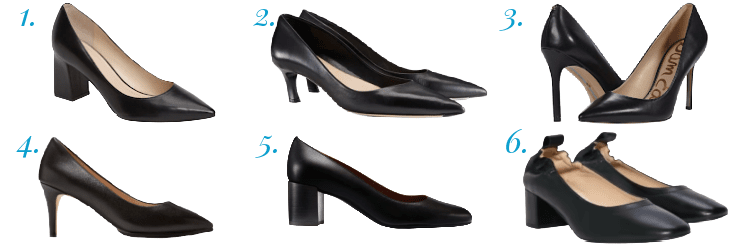

Justin
The woman from Tip #7 sounds like an anal retentive nightmare. At least in the law firm world, you don’t need to keep track of anything but names.
Tip #8 is spot on. You don’t want to be in the car or at a bar (or both) when a recruiter calls to schedule your call-back.
Tip #9 is also great for anal retentive freaks.
mj
I respectfully disagree with the “it’s OK to just send one thank-you if you’ve interviewed with multiple people” advice above. Especially in banking, call-backs are determined by school teams/committees. The more people who find you memorable or thought you were kind enough to send a thank you, the more advocates you will have. Send an email thank you the day of the interview, and follow that up with handwritten thank-yous on nice stationary asap, even if you lose a little sleep. It’s VERY important etiquette-wise.
More advice from a banker chick who has been in the trenches:
Don’t forget eye contact–this is key. If you get squeamish really looking people in the eye, focus on their eyebrows. They’ll never know the difference.
Never accept a hot drink (or anything you can’t throw in your purse). If you meet someone but can’t shake because you are holding tea/coffee and your padfolio, you look stupid. Just say no thank you, politiely, unless you are dying for caffeine.
ALWAYS bring an extra pair of panyhose in your purse. Tres embarassing to be traipsing around with a run, or, in bare legs. Always bring tampons and advil for cramps too–you never know and asking for help with…that…could be super-awkward.
If you have multiple interviews, do not feel silly asking to use the restroom between interviews. People will understand. This is a good time to check your collar, makeup, etc. Don’t leave your purse behind–you need your makeup!
Speaking of makeup, some people think that you MUST wear it, others think that you can be called out for wearing too much, so stick with tasteful, neutral colors. This is not the time for come-hither smoky eyes. Think minimal, polished, and you will strike the right note.
When in doubt or if there’s awkward silence during an interview, default to a few failsafe questions. (Make a smooth segue, such as, “Actually, I have few questions for you.) BTW, when the interviewer asks you, “Do you have any questions?”, you SHOULD have some pre-prepared questions.
1) What made you choose XYZ firm? From your insider perspective, how has it changed since you joined?
2) What surprised you most about XYZ firm when you first joined, and what surprises you now?
3) Tell me a war story (all attys/bankers love to talk about cases/deals that kept them up at night. Trust me!)
4) Feel free to taalk sports, kids or hobbies if you see memorbilia/photos that throw you a bone. Be careful not to say, “I’m a huge Sox fan!” if you can’t name a player on the team…be genuine, or this can really backfire. Also, know if you’re in Yankee territory before you declare undying love to, say, the Sox, even if you are from New England. Don’t give people a reason to dislike you, no matter how small.
5) If you are SUPER-desperate, get the interviewer to talk about his/her law/b-school glory days. Most people look back on student life fondly once they are trapped at work. Tap into that nostalgia.
GOOD LUCK!
Anonymous
The suggestion to set up Google Alerts or Westlaw alerts is ridiculous and totally not necessary. In fact, it very well might result in the candidate coming off as really weird. Similarly #3- “search Westlaw for recent decisions (or briefs) that lawyers at the firm were involved with.” Who is coming up with these tips? I strongly suspect you are a law student and not an attorney at a firm.
Anonymous
“we had a friend who…” This article couldn’t sound more fake.
casey
I totally agree with the “WEIRDO!” advice above. If an interviewee wanted to talk about a recent case or firm event, he or she would come off as 1) not understanding that attys can’t really speak in detail about a matter on which he or she worked 2) suceptible to my biglaw firm’s spin machine (most PR stuff is complete fluff) or 3) not understanding that in biglaw, only a handful or dozen folks work on any one case/transaction, so dropping one case/deal doesn’t really help connect with most people who are sitting across the table from you.
The spreadsheet sounds anal, and is a little OTT, but I concur that after dozens and dozens of interviews, it’s good to connect/remember something specific about things. So, a silly reminder notes are fine, but an excel spreadsheet…well, you’re gonna make a good lawyer when it comes to taking notes during due diligence…..
C
MJ – thank you for your comments — great to have the banker’s perspective.
Re: Westlaw — We stand by our advice. Say you want to be an appellate lawyer and the firm SAYS they do tons of appellate work and then you run a Westlaw search and there are only 5 opinions (or worse, 5 briefs) involving the firm — you’ve just discovered something, which you can ask about when talking to junior associates: has your experience at the firm been in discovery or in briefing? Let’s also say the firm is appealing a judgment of 9 figures against their client — that is something that EVERYONE in the firm will know about. The interviewee doesn’t need to discuss it — “So what’s your trial strategy?” or “Seen any hot privileged documents lately?” — might come off a bit weird — but to acknowledge that the firm is involved with a huge case is helpful and shows your interest.
Personally a Westlaw search came in useful for me — I was interested in a specialty and when I interviewed with one of the top firms, I ran a search and found that one of the partners at the firm had litigated a HUGE case in that area. It had been a few years ago so we could discuss it, and where the law was going, and how the court’s opinion in the case had affected the law. I got the offer, but ended up declining. Always felt horrible about that, too, since he and I had bonded so well over that case.
AS
I absolutely disagree that one thank-you note is enough in a law firm interview. I just moved from a small (6 atty) firm to a mid-size (80+ atty) firm in a mid-sized city in the Midwest. I had three interviews, each with four or five attorneys present. I sent individual thank-you notes to each attorney (sometimes multiple TYs, since they were there at multiple interviews) and they later told me that that was something that impressed them. So, you never know what’s going to impress a person/firm, and you have to remember that you need to set yourself apart from other interviewees. Just my two cents.
The other interview tip I believe is truly important is that not only are they interviewing YOU, you are also interviewing THEM. This may seem like dumb advice when you’re desperate for a job, but it’s not. If you get a bad vibe from a firm when you interview, think twice about accepting their offer. Gut feelings are often correct feelings, and although being unemployed sucks, being miserable isn’t so hot either.
lawyerette
Actually, it is critical to know the top clients of a firm. THAT will come off well, rather than knowing what cases they have recently done. If I were going to pick some things to suck up by knowing (that would be impressive to a law firm) I’d go with (1) I notice that you have three of the biggest X companies in the country as clients – I love the challenge of keeping up with a client’s business, products, and needs, and that industry moves very fast. (2) I see that the Y section has grown over the past 3 years, and is handling some very high-profile, diverse matters. I am fascinated with that area of the law, and chose this firm because I want a growing, challenging section in which to work. (3) I am very active in the bar, and this firm is consistently mentioned by both practitioners and judges as having integrity in their dealings. Integrity and a long-term approach to treating clients well and expanding my professional role in the community are critical to me, so that was what drew me to this firm. (When you say this, you had better be able to say which judges you talked to. They won’t ask about the other lawyers, probably, but they WILL ask what judge thinks well of them).
Obviously, you can’t do this without a little bit of research or networking. But this isn’t about looking at past cases on Westlaw, it’s about noting who are big clients of the firm, and thinking a little about what the firm seems to value about itself based on its marketing materials. Don’t buy the marketing — just realize that, because the partners paid a lot for that crap, they like to believe that the marketing truly reflects some of the things that differentiate their firm. Finally, you can hardly go wrong by telling the firm that you chose to interview with them because of their great reputation, but that should be a secondary point to pointing out some fabulous point about yourself – point one or two. To really hit on out of the park, you want to take the question that they give you and turn it into why you are so awesome and how you will fit into their business plan. Think about it: as a litigator, all I do is take facts and law and swing it into why my client should win. Take that skill and use what you are given to say why you should win. Especially lawyers will appreciate it.
M in CA
Re: #9: I think it is a very good idea to set up Google alerts and check Westlaw — I wish I had done it before interviewing at my current firm!
Re: #8: I think this is good advice. How helpful would it be to have a record of your impressions of potential employers for your own purposes — to remind you of what, or who, you did or did not like at a particular place, etc? If you can keep it all straight in your head, great, but I would rather free up that mental space for other things.
Re: Lawyerette’s advice — I am assuming this means know the firm’s corporate clients. If your firm has high-profile clients who are actual, real-life people, it may be a good idea to be aware of this going into an interview but I would not suggest dropping names. Discretion is valued.
MJ: that is great advice about the purse-friendly drinks. I had never heard that — great rule of thumb!
ela
I have a different take on the thank you notes, both regarding to whom you send them and what media you used (email or thank you cards).
Most places I have interviewed with and been hired by have told me (in referring to other, later interviewees) that sending a note to every interviewer is overkill.
First, who: focus on the deal-makers: the recruiting person/people (I’d send somethign to the manager, not a scheduler/assistant), the most senior interviewer with hiring authority and perhaps 1 or 2 others (maximum) that you felt you had a connection with.
How: This is not as clear. The effect you want to have is that you appreciate that the recipient took time from their BUSY day to try to get to know you and to add value to the (hopefully) good impression you made in person. Some interviewers will remember a nice card on “thank you” stationary. Some will be relieved to only receive a short, professional email that expresses your gratitude. If I were to hazard to make a sweeping generalization, I’d send the shi-shi thank you notes if your highest-ranked interviewer was a woman. Women notice these sorts of details (here we all are on this blog) and it will make a nice impression. Send most male managing or hiring partners types (or VPs or SVPs) an email. I think the stationary is lost on them. Whichever way you judge is best, be consistent. Send all recipients the same kind of thank you (digital or tangible).
A war story: a candidate for a summer associate position once had the nerve to ask a random secretary to “run over to Nordstrom” to buy the candidate a pair of hose since she’d gotten a run in hers. Not only was this despicable, she didn’t even offer the secretary any money to use to purchase them! (There was a Nordies only a block away.) This news spread like wildfire while the candidate was in a partner’s office interviewing. The whole office knew about it by the time she was escorted to the next interviewer. So, yes, bring a spare pair of hose and yes, as always, BE POLITE to everyone! Especially in this economy, don’t give anyone any reason to think you won’t excel at the job.
And yes, you are screening your employers just as they are screening you–always go with your gut and walk away (graciously) from anything that gives you an off feeling.
BigLaw
And by “have hired”, of course I mean “haven’t hired.”